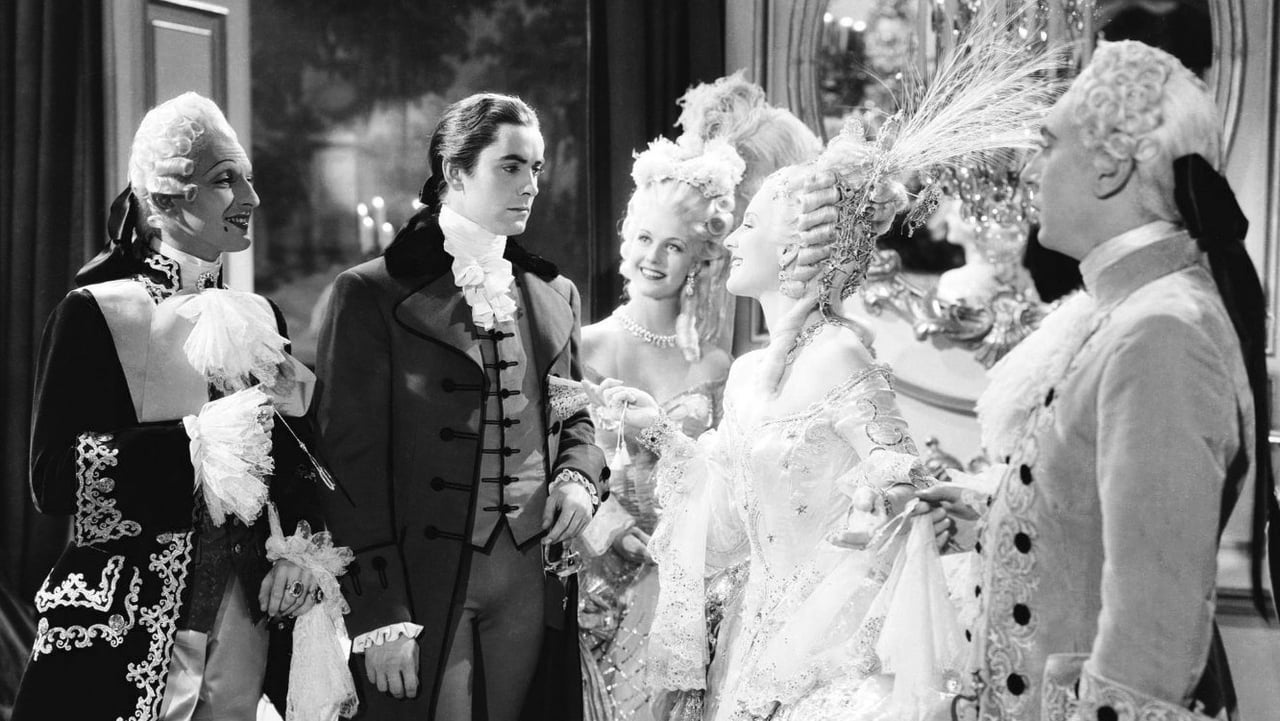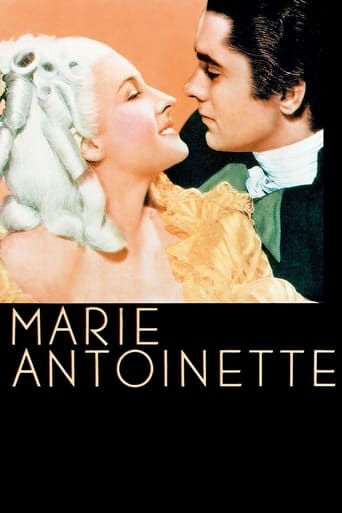

The camera frames such wonderful images that the viewer would be excused for seeing the first half of this film as merely superficial, but it is a wonderful portrayal of a young woman with dreams and aspirations who finds herself in circumstances that thwart her every desire and intention. The film opens with news that Marie of Austria (Norma Shearer) is to be wed to the French Dauphin, heir to the crown. When she meets Louis (Robert Morley), he is a backward, anti-social recluse. She is received by the French court as an interloper and an inconsequential nuisance. Her enthusiasm for life carries her through her trials in court and she eventually triumphs in spirit, if not in the realities of her life.The film's second half tells the dramatic story of the French revolution, when "the people"--a senseless mob--overturn the monarchy."Marie Antoinette" is blessed with the eye of an artful director, beautiful costumes, an intelligent script, and striking performances, especially by Norma Shearer and Robert Morley.Tyrone Power portrays Count Axel de Fersen of Sweden--a much smaller role, but the anchor to the film's love story. Still, this is a tragic story despite its triumphs. History demands that Marie pay for her sins, though they be sins of inheritance or sins of statecraft.One can only imagine what the film might have been if it had been filmed in color; that is its only shortcoming. Still, its a heartbreaking story of love and the machinations of history, as seen through the eyes of a beautiful woman.
... View MoreNorma Shearer was at her best during the silent era and the pre-code period between 1929 and 1934. Once the Hays Code rolled in, she was stuck with what have been described as "queenly roles" in rather stuffy period pictures like Romeo and Juliet (1936) and this film, Marie Antoinette (1938). Despite its reputation, this is not a bad movie, just a rather standard Hollywood biopic.Shearer does well as the queen and undergoes the transformation from innocent teenage bride to weary tragic queen beautifully. Tyrone Power is handsome and solid, but doesn't get to do much as the queen's lover. The rest of the cast is good, but not exceptional.The sets and costumes are breathtaking. It's a shame this was not filmed in Technicolor as was planned. The ornate settings beg for it.All in all, not bad, but nothing special.
... View MoreAt first I was hesitant...I thought, oh no, this is going to be an over-blown costume epic, a film that was probably trying to exaggerate its own importance. But it really doesn't play that way. Norma Shearer in the title role is not exactly subtle, but she's not over-the-top, either. I agree with others who say that the ending of the film is the strongest section, but I also loved the 'Russian' scenes when Marie met Axel. There should be more movies like this today, not because we need to bring back a certain time in American cinema, but because we need to be reminded that life is simple and grand at the same time. This picture captures that perfectly. The only quibble I have about some of the film is that it does seem a bit too American and British to me...I had difficulty believing there was a French or Austrian element. I think the sentimentality could've been muted a bit and if it were remade today, I think more of the execution scenes should be featured, instead of played off-camera. Also, we should've seen the part when the son was forced to testify against his mother. Nonetheless, the entire effort is very memorable. My favorite scene was when Marie was being led to the guillotine and her eyes locked with the peasant woman in the crowd who could empathize with her. Very powerful!
... View MoreNorma Shearer was about about 36, looking about late 20's; Robert Morley was about 30, looking about mid 30's. And, this is where the problem lies.The prologue that tells about the announcement of the engagement, the first meeting with Louis, the marriage and the night of the marriage make no sense if your basis is that the actors are over 30 years old.The fact is that Louis was 15 and Marie was 14 when they were married. Their young age, without benefit of sex education, might explain much about the awkwardness of their relationship in their early years together. To watch 30 year olds trying to play-out the ignorance of kids, is too abstract, and a distraction.I would love to see this film remade with actors who can look like they are still in their mid-teens.But Norma Shearer gives a wonderful performance. And, Tyrone Power looks as hot as any guy could.
... View More